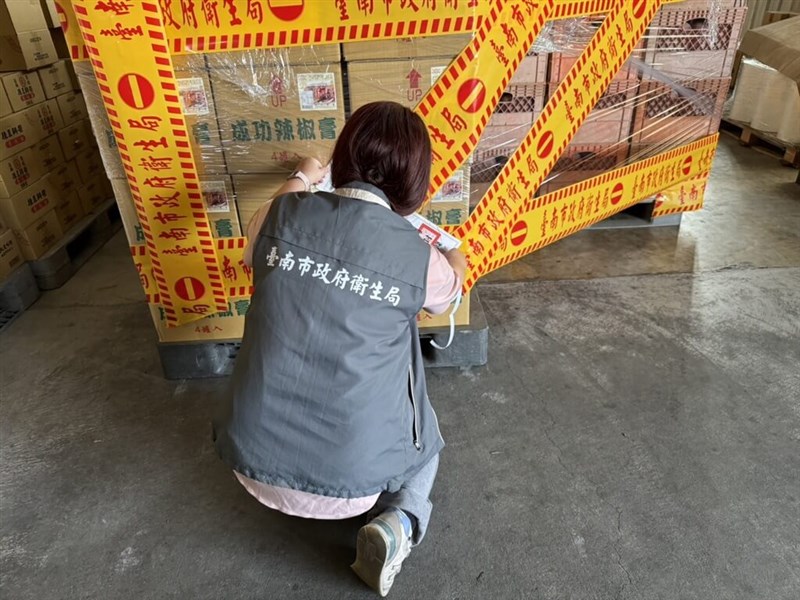
Taipei, March 9 (CNA) An investigation into Taiwan's food safety mechanism is underway to better protect public health, three Control Yuan members announced Saturday, following the recent discovery of toxic dyes in chili powders circulating domestically.
Tien Chiu-chin (田秋堇), Lin Kuo-ming (林國明), and Tsai Chung-yi (蔡崇義) said they will focus on both the existing food safety inspection system and prospective preventive measures to address public concerns following the importing of powders from China made with Sudan dyes, classified as toxic substances and banned in Taiwan.
As a result, the members of the top government watchdog body said, they are investigating whether there are flaws in the Act Governing Food Safety and Sanitation and seeing if improvements can be made to the legislation.
For instance, the current act seems to have fallen short in ensuring effective food quality control, they said in a press release.
While the act mandates listed food companies setting up laboratories for "voluntary product testing," smaller-scale businesses have been exempted from establishing similar mechanisms, they said.
There is also no mention of penalties for failure to do so in the act.
The chili powder case came to light when the Yunlin Public Health Bureau reported on Feb. 8 that in late January it had found red chili powder used by a company in Taiwan contained 18 parts per billion (ppb) of Sudan III.
That resulted in several food products across Taiwan, including spicy shrimp chips called "Hsia Wei Hsien," being recalled over the past month. All cities and counties have also announced temporary bans on the use of chili and curry powder in school lunches.
According to Taiwan's Food and Drug Administration, a total of 127,089.2 kilograms of chili powder and related products have been removed from shelves as of March 7.
- Society
Thousands of Muslims gather across Taiwan for Eid al-Fitr prayers
04/10/2024 05:13 PM - Politics
New Cabinet to respond to domestic, global challenges: Lai
04/10/2024 04:55 PM - Society
Electronic pet ID card launched by agriculture ministry
04/10/2024 04:51 PM - Business
U.S. dollar closes lower on Taipei forex market
04/10/2024 04:11 PM - Business
TSMC reports highest sales for Q1
04/10/2024 03:52 PM